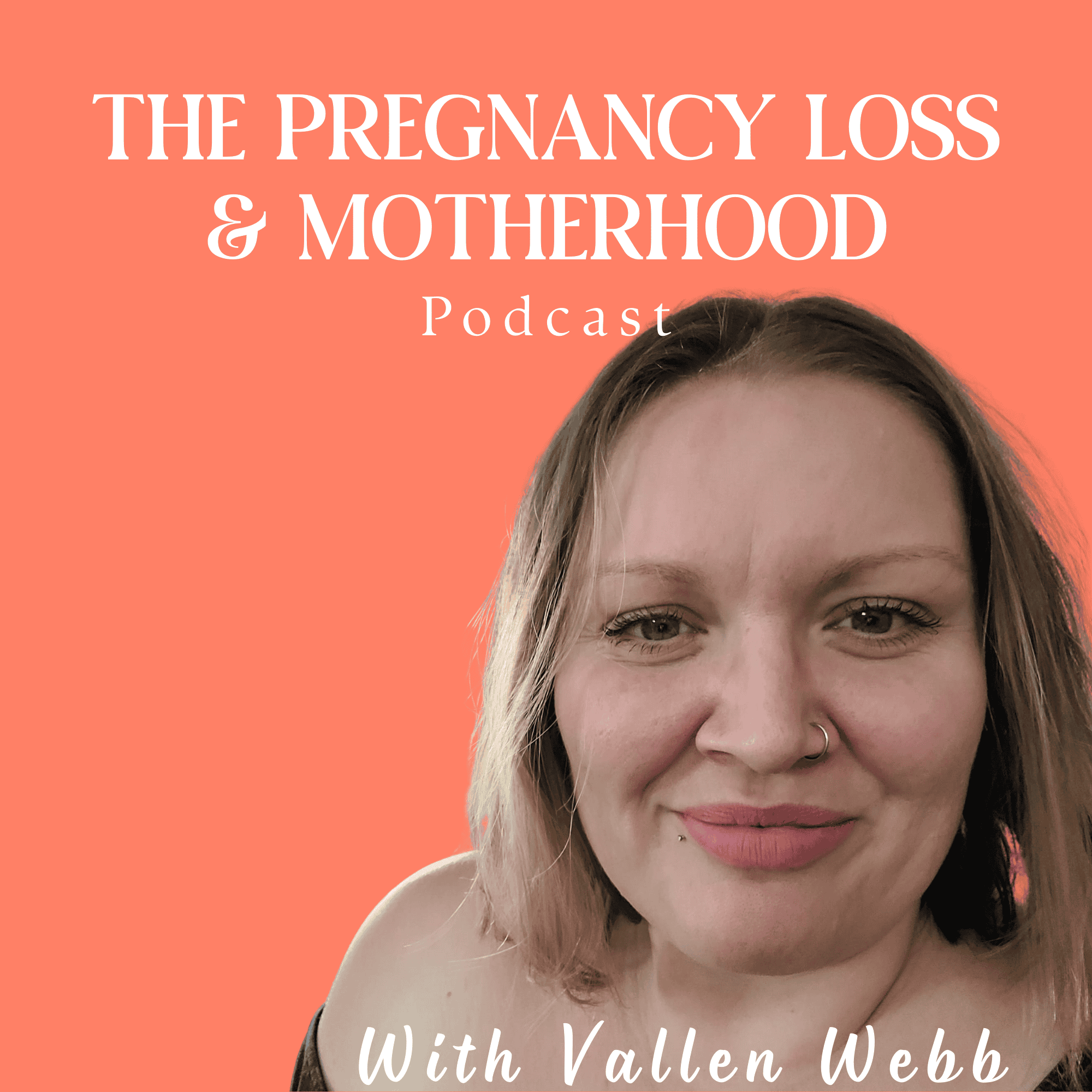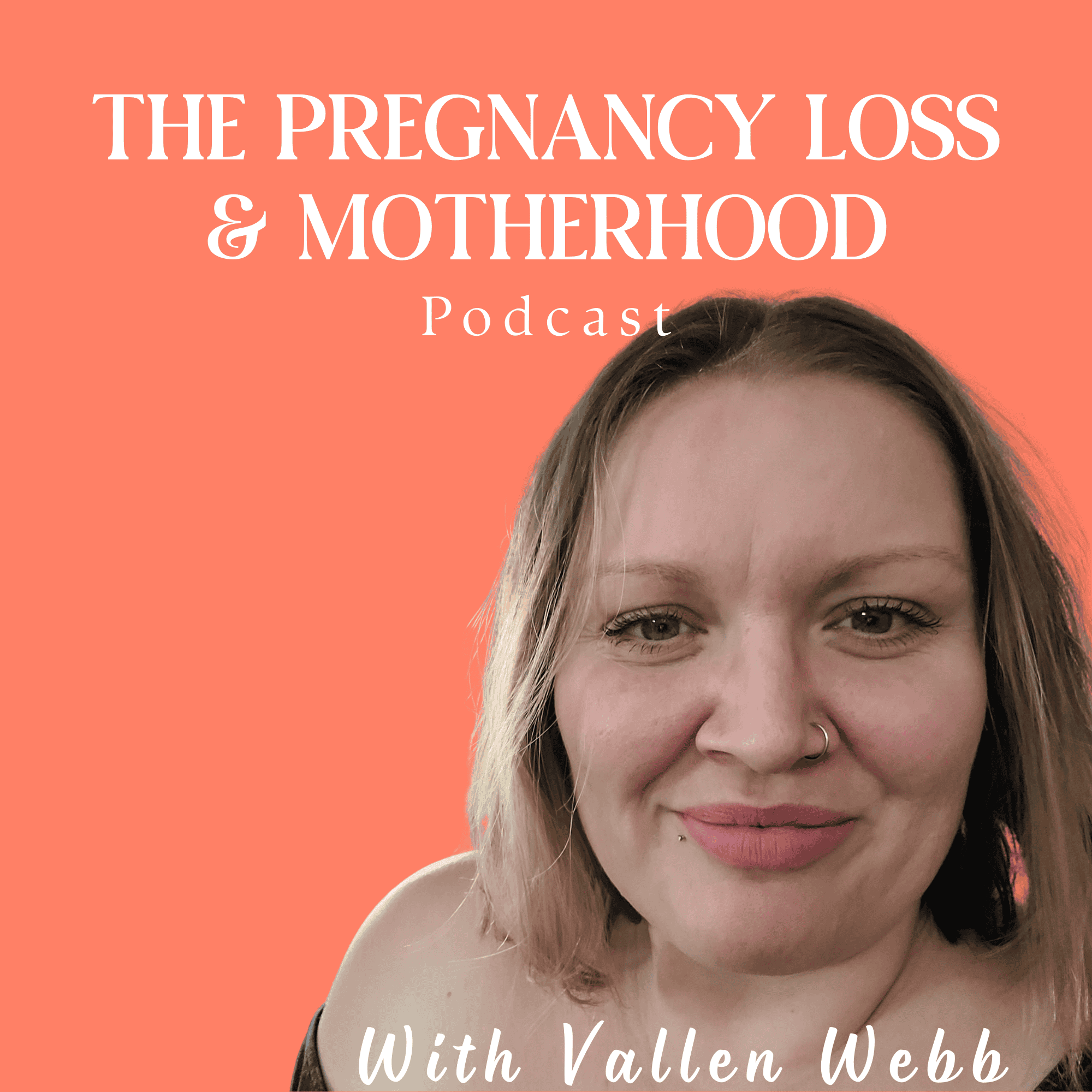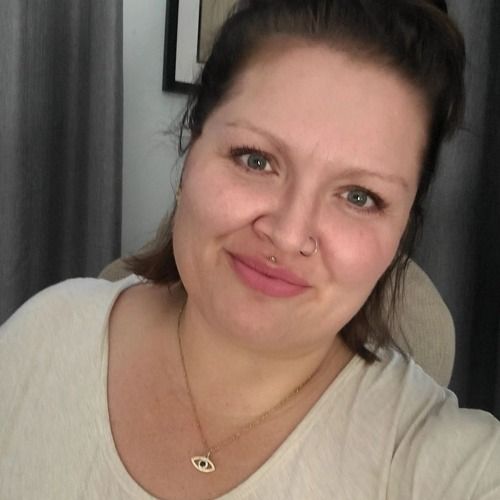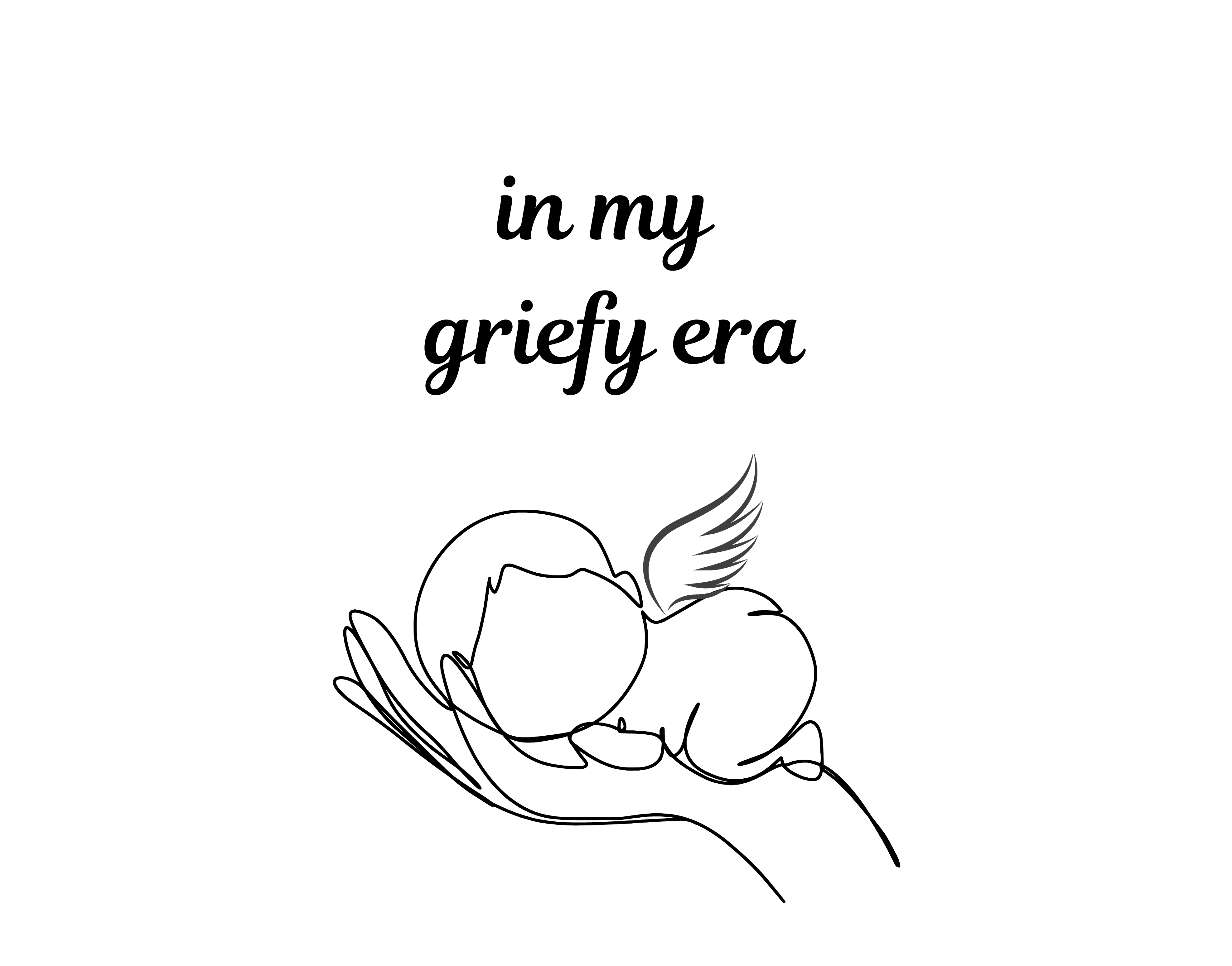Episode 86
When Dads Feel Like They Failed to Keep Their Baby Safe- The Protectors Paradox
Make sure you check out the Bereaved Parents Marketplace!
We created a shop and resource hub just for you.
Check it out HERE. Evelynjames.shop
In this episode of the Pregnancy Loss and Motherhood podcast, host Vallen Webb delves into the often-overlooked grief experienced by fathers, particularly in the context of pregnancy and infant loss. She introduces the concept of the 'protector's paradox,' where fathers feel guilt and shame for not being able to protect their children, despite the fact that these feelings are often unfounded. The conversation emphasizes the importance of recognizing and validating men's grief, providing them with the necessary support, and creating safe spaces for emotional expression. Through personal anecdotes and research, Vallen highlights the need for society to better understand and support grieving fathers, allowing them to heal and process their emotions in a healthy way.
Takeaways
- Dads often feel a heavy burden of guilt after loss.
- Men's grief is frequently overlooked and unsupported.
- The protector's paradox describes the guilt fathers feel.
- Role-based guilt can lead to emotional shutdown in dads.
- Grieving fathers need validation and permission to grieve.
- Support groups are crucial for grieving dads.
- Men process grief differently than women.
- Creating legacy projects can help in healing.
- Physical outlets are important for grieving men.
- Grief is not a competition; it's about mutual understanding.
Links + Resources:
- 💌 Join our grief + growth newsletter: Here
- 🎙️ Listen to more episodes: On Spotify or other favorite podcast platform!
- 🧡 Visit the Evelyn James Shop: https://evelynjames.shop
Thanks to our partnership with IMBODHI, my Favorite Mom Outfit, Join the adult onesie club! I promise you won't go back! Imbodhi is the most amazing brand out their for unique, colorful, ethically sourced and comfy materials. Get $15.00 off using my code! The mom outfit you don't want to miss out on! https://www.imbodhi.co/VALLEN31986
Connect with Me:
Instagram → @evelynjamesandco
Shop & Resource Hub → https://evelynjames.shop
Transcript
Hey, love, welcome back to the Pregnancy Laws and Motherhood podcast. I'm your host, Val and Wed. Today we're going to be talking about dads. ⁓ Yesterday was Father's Day. Well, I'm not sure when you're listening to this, but Father's Day just passed and I'm doing it on Father's Day actually, but. ⁓
I feel, I don't know, there's a big push out there to support dads and take care of dads, but yet there is no specific way to do that. it's really hard, okay? Dads are so amazing in so many ways. Supporting them can sometimes be challenging.
But men's grief we don't we don't often see or understand, but it's there. ⁓
It's powerful and
What we're going to talk about today may really connect with a lot of dads out there because today we're going to talk about the protector's paradox. Okay. Something that men.
deal with it happens when you know dads people but for now we'll just stay on dads dads when they feel like they failed to keep their baby safe. If you're mom listening I hope this helps you better kind of understand what your partner may be carrying. If you're a grieving father this episode is for you to validate the pain the guilt maybe even the quiet shame.
you may be living with or have been living with for long time. And to show you that
It is possible to heal this part of your story, this part of you that you carry. ⁓ You don't have to let it sit with you forever in deep dark shame or guilt thinking you've done something wrong because you haven't. ⁓ So let's talk about this idea of the protector's paradox. So like thoughts like I was supposed to protect them and I failed ⁓ this thought.
I've heard it many times ⁓ from other podcasts and hearing dad's stories and my husband's story, like this thought looped through the minds of so many dads after pregnancy or infant loss. It's really heavy and it's truly just this quiet burden that doesn't really get talked about a lot. doesn't, it's not spoken out loud. ⁓
It's, what researchers and grief counselors have described and named as role-based guilt where our men define their worth and identity around protection and provision and leadership. And when something tragic happens, like our babies die, stillbirth, NICU death, miscarriage. mean, even though it wasn't their fault in any way, they internalize that.
They didn't do enough. ⁓
And this is something clinical psychologist, Dr. Kandoka, ⁓ he calls this disenfranchised grief. Okay, so it's a grief that often goes unnoticed when someone's grief isn't openly acknowledged, validated or socially supported. And for so many dads, their pain is just buried beneath this perceived role of theirs, okay, as the rock, the support.
the one that doesn't fall apart or show emotions, but underneath that stillness.
There's failure, there's guilt. There's this grief that nobody prepared them for or that nobody's talked about or they've never heard before. And when we don't have that name for something, we cannot take our power back from it. I don't know who coined this term, name it to tame it. I hear it on all my business podcasts about like mindset.
You know, stuff, but name it to tame it. We have to put a name to what is happening. What's going on within us to tame that guilt or shame, whatever we're going through. So, let's kind of talk about what research said about how dad's grief. ⁓ There was a study published in BMC pregnancy and childbirth in twenty one. It found that many fathers.
often feel overlooked and unsupported in the aftermath of stillbirth specifically. They suppress their emotions because the focus shifts entirely to the mother and culturally that's what men are expected to do. And me and John's story is a bit unique in the way of
⁓ him being in the military and he was on a deployment when her loss happened. ⁓
He didn't get to go through that experience with me.
He was they were able to get him home 5 days after Evelyn had died.
after she had already been cremated, after I had already had to make all these really huge decisions that I didn't know I could possibly put off. I could have asked for more time. know, one of the reasons I do what I do, because I should have had that option and my husband never got to hold his daughter. He never got to see her. ⁓
So his grief is very difficult. His grief is so traumatic. ⁓
When he got home, even though I didn't experience it in the hospital with him, I did experience him being the one, like everybody expecting him to be the one to take care of me, which obviously, yes, he's my love, my husband, my protector, ⁓ my provider.
him feeling like he shouldn't have been on that deployment. He failed me.
He failed our daughter for not being here. ⁓
So it's just this really deep seated shame of not being able to do what a man is supposed to do. And that is humbling just to think about to me. I couldn't imagine, I mean, I did in my own version go through this, right? I was supposed to keep my daughter safe in my body, in my womb, and I couldn't.
So there's a lot here. Another study in the journal of perinatal and neonatal nursing reported that fathers often blame themselves for not noticing warning signs, ⁓ feel responsible for not advocating harder. Like, maybe if the mom is feeling something has intuition nudge, not feeling good, they regret not pushing for a second opinion, believe they failed their partner and child.
and struggle with expressing grief through words. Because again, our men were never given the space or the time to ever grieve like we have. They are expected to do it in silence. Like, I've never seen a man openly express his grief, like up until I came into this world.
And I've seen these brave dads like talk about it, talk about their experience and their grief and their love and ⁓
It's so devastating, but it's so needed and other men need to see other men doing this. So what helps?
Okay, so according to grief researches like Dr. Alan Wolfelt and organizations like the National Perinatal Association, the most effective support for grieving dads includes validating their pain, right? Just like the mother, giving them permission to grieve in their own way, giving these couples, these partners the tools and the understanding that they will grieve differently. When me and John were grieving and
We were completely opposite or he internalized everything and I was the outward griever and mourner. It was devastating to our relationship because I thought that he was like, okay, and that he wasn't grieving and he wasn't crying. He wasn't grieving like me.
It caused a lot of problems in our relationship. ⁓ But I didn't know that we were going to agree differently. We had never experienced big grief like this together. Anything like this. ⁓ So what else do they need? They need opportunities to connect with other men who've experienced similar losses. So those support groups are so important. And that's why we need to get some really great ones that they feel comfortable with that they can make these.
Connections, ⁓ a partner or therapist who allows for emotional expression without judgment, getting them a really safe person, a safe space to express this in their own way, in their own time. ⁓
And then.
Things like...
Creating legacy projects, know, starting podcasts, writing books, maybe starting foundations or nonprofits, writing letters to the baby, maybe ⁓ engaging in advocacy on that side instead. There's a lot that they can do and a lot that we can help them with and giving them permission to do it. ⁓
So. ⁓
Another, ⁓ something, ⁓ a bit more personal I've shared before. Now, this is about my dad who has this, I call it a hero complex more so than a protector paradox.
because my dad...
stoic in many ways when I was younger, but as he got older and as he started having grandchildren, he became much softer and more just emotional, invisibly emotional, if you get what I'm saying, like just outwardly showing how he's feeling. ⁓ anyways, before Evelyn was born, I had told my family, my mom, my dad, because they were the only ones who were going to visit that
I wanted to be alone the first couple of weeks with the girls. I didn't want anybody there because when my family is there, I feel obligated to take care of them. They're expecting me to cook dinner. Like, ⁓ I'm sure my dad would have bought me dinner and stuff, but there's those expectations of me that I'm not wanting. know, John wasn't going to be there. So I just wanted it to be me and my three girls. ⁓
And so my dad was like, okay, I'll come out a couple weeks after. ⁓
And when I had to make that phone call that Evelyn had died, that was probably one of the most devastating phone calls. He was just confused and
You know, one of those ones like, what do I do? ⁓ What do you need? Like what? my God. Like how is this happening?
And it's only, you know, split seconds that these things are going on and you can feel the, the, I don't know if you would call it like anxiety in the air of like, what do I do? What do I do? What do I do? ⁓
He just couldn't understand me. I mean, I couldn't either. And I'm so sad that I can't recall all, you know, our conversation, what was said, how he comforted me.
I remember feelings, but not words. It's kind of how...
The grief brain works, right? We remember how we were treated. We remember how we felt, but we don't really remember exactly what happened in verbal terms, at least for me. anyways, my dad has blamed himself for Evelyn's death since she died six years ago, almost six years ago. He believes that if he was there, he could have saved her.
He believes that he could have saved me from this. ⁓ He just, wanted to take his daughter's pain away. He didn't want me hurting.
hum. He really didn't want his granddaughter to die.
And to this day, we still can't talk about it. And I've expressed to him how much that hurts me.
even though it's what he needs.
I mean, she was named after him and my brother. That's where James comes from. My dad's name is Michael James Shaw. My little brother's name is James Kyle Shaw. And she was Evelyn James Webb. She was named after my two favorite guys. So.
This is a real like man thing. ⁓
Men deserve the space to grieve and to be taken care of too.
I mean, John still carries this around with him, wishing he could have saved her or me from the pain. And my dad too. And same with me. You know, I wonder if I would have went in, if I would have gotten to the hospital sooner, if I would have just.
But the truth is, I did everything right. They did everything they could have done right. And she still died.
And that's the paradox part. He couldn't have prevented it, but it feels like he should have.
So let's talk kind of how how does guilt show up in dads. This kind of guilt, it can lead to an emotional shutdown. That's what I experienced with John. He didn't want to talk. He didn't want to. He wouldn't really look at me. Withdrawing withdrawal from their partner kids, difficulty bonding with future children. They have a higher risk of anxiety, depression or substance use.
feeling like they don't deserve to grieve.
I think a reminder for all of us that men may not cry openly, but that doesn't mean they're grieving. Crying is, is, you know, the outward expression of grief, which is called mourning and.
Men have to be the ones to hold it together. That's what's expected of them. the problem is that their pain is often invisible because of that. ⁓ So what do they do? They show it. They show it by doing, by fixing, by protecting more fiercely, even when their heart is fucking breaking. They show up.
I know there's always outliers, know there's men who don't, I know there's men who can't. ⁓ What I've seen is dads fucking show up.
If you're a listening to this, like, you are amazing and incredible. You are humbling.
my husband gave me the permission to just fall apart and be.
As my protector, he did that for me. He held it.
and that's what you guys do. And it is just...
I'm astounded by what men can handle and why we're so complimentary and why men and women, they each have a role. And I'm not talking in like traditional sense. I'm not talking about house duties and stuff like that. I'm talking about the way we compliment each other emotionally and spiritually.
and even physically.
I just, see those, those things and that's how I connect them. that might not be your story. ⁓ but here's some things, here are some things that can really help grieving dads heal and release the guilt. So one being told it wasn't their fault and more than once really solidifying that thought in them so that they can start to believe it.
We need to support them.
Reminding them saying one thing one time is not good enough. It's not. It's not even baseline. And not in a like in a domestic dismissive way, directly personally and in different ways. Like. Not only this is not your fault, but you did not fail. There was nothing more you could have done. You advocated fiercely for your wife or your partner.
You were there. You did everything you could think of. did every right thing and this still happened. These are things we need to be saying to our partners, to our spouses, our husbands, and often.
Number two, being invited into the grieving space, right? Not like sidelined, not made to be just the supporter.
but being offered a seat at that table of grief and remembrance, right? Like they get to come sit down, they get to do the memory making and the, you know, they get pictures with their baby, they get to do the hand and footprints, they get to do the skin to skin and change a diaper. ⁓ The nurses are taking care of the dads too. They get a meal too, they get drinks too, they get a nice bed too. Jesus Christ, like these families are staying in the hospital for a few days.
And you make the dad sleep on a fucking couch that just sucks. Can we get a beautiful baby suite with like a king bed in there? Where mom and dad can just lay with the baby and with each other and grieve? Like, wouldn't that be ideal?
Let him do things like plan the memorial, know, picking out a name, helping pick out the name, ⁓ or picking an item for a memory box, or helping pick the outfit that the baby's going to be buried or cremated in, or pick out the urn. ⁓ Writing letters to the baby, letting the dad or the partner write letters to the baby. And they can be buried with the baby. ⁓
You can ask for them to be cremated with the baby or you can keep them in a memory box, making sure that he joins a support group or just sit in on some support groups online.
⁓ Another thing we can let them do that will help them heal is grieving physically. ⁓ Men often process through doing, which is why they're the doers, right? They suck it up. They suck up those emotions. They just do what they have to do. So we need to offer them outlets where they can physically get it out. I just did an episode on rage. You guys should check out.
But rage is a common and natural emotion to losing somebody that you love so much. So when rage comes up in men, it's not a problem unless they don't have outlets. We need to give them outlets. ⁓ You do this by supporting the mother, the mom or the partner at home, the birthing person at home who just gave birth, supporting them for the day so that the dad can go out.
They can go out on a hike, ⁓ build something if they are like, they need to build with their hands, go donate to do something, maybe go like work in the garden, plant trees, ⁓ physically work out. Maybe they need to go to their CrossFit, get on their routine. ⁓
A lot of men like to get tattoos. gives them that physical pain outlet that results in something beautiful and can be memorialized their baby. ⁓
Number four, we can make a space for the rage, the regret, you know, all those feelings that they may have, and then the rebuilding of the life of their marriage or partnership or relationship.
Rage is...
Rage is sharp. Like, I'm trying to figure out how to express that. Dads need safe spaces to release it. I think those rage rooms, you know, like you have to break shit. Maybe they just do that in the garage or maybe they throw rocks at something that they can break, like throw rocks at old bottles or like glass bottles, you know, something. ⁓ They need to be able to release it.
And if they can do that over time, kind of like an Instapot where it's, it slowly lets and vents out the air as it goes, if it gets too much pressure, it's safe. You know, they need to release it like moms do and holding it in only makes the guilt grow. It makes it louder and less manageable where there's just outbursts and start, they start looking maybe for,
shoot, what's the word I'm looking for looking for things to soothe, right? Looking for that, you know, getting into not great coping, coping tools, coping things. Number five, gentle therapy or coaching. Many men benefit from the one on one grief support where they don't feel pressured to perform in a group.
So this can be life changing for them. It can be helpful in their healing. ⁓
And not just mental health therapy, massages and acupuncture and all these self-care things that we would love mom to do. Dad's doing it would be amazing as well. They deserve it.
So if you're grieving dad and you've carried this belief that you failed, I just want to tell you this now in case maybe you haven't been told it in a while, maybe you've never been told it, maybe you don't believe it yet. You did not fail.
You loved. You showed up. You stayed.
You are grieving. You are this baby or baby's father. Whether they're here or not, your pain is real and valid and worthy of space.
and worthy of amplifying, of hearing, of people listening, of people witnessing your pain. And if you're a mom listening, just please know that your partner might be carrying this silently. Sometimes we grieve differently and that doesn't mean he doesn't care or that he doesn't want to. It just might mean that he doesn't know where to start, where to begin.
realizing that grief is in a competition. It's not about whose pain is louder or more passionate. It's about learning to hear each other through the silences that you carry throughout the day. ⁓ Learning to understand each other's body languages and energy and knowing that something's off or that they may be feeling a certain way and like naming it, communicating, you know, so.
Here's a good reflection prompt for you today if you like to journal. Where am I carrying guilt that doesn't belong to me?
Where am I carrying guilt that doesn't belong to me?
Make sure to share this episode with a dad or partner, brother or friend who might be silently carrying the weight of pregnancy infant baby infant loss. ⁓
Make sure if you can, if you listen to the podcast, leave a review on whatever platform you listen to, leave a comment, five star rating, whatever it allows you. ⁓ It really helps our podcast expand and we want to help as many families as we can. This episode is brought to you in partnership with White Elm. ⁓
Kill it. the Aquila tote is still my favorite bag for hospital visits do the work and mom life Make sure to grab yours at shop white elm.com/Vallenwebb or you can just use my discount code Vallenwebb This supports the podcast at no cost to you. So if you love the bags, make sure to use my code ⁓ I love you guys and until next time breathe Feel
Just feel what you need to feel and remember that you're never alone in this, not ever. We'll see you next week.



